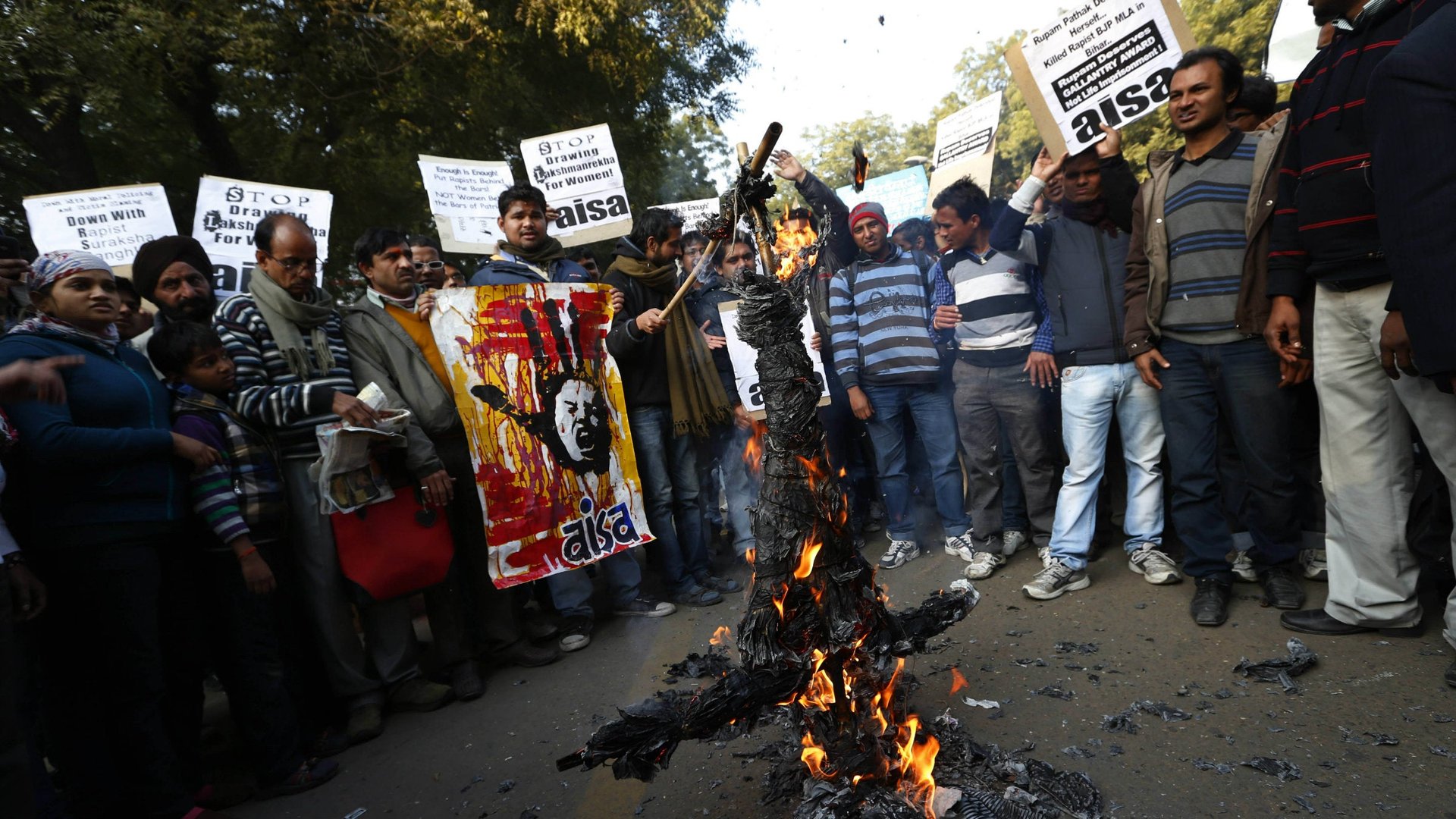Five questions about the Delhi gang rape that still need answers
Finally, the hard questions are being asked.


Finally, the hard questions are being asked.
The Delhi High Court is investigating the official response to the Dec. 16 brutal, and ultimately fatal, gang rape of a young woman on a bus in India’s capital. A male companion who was also attacked says police debated who had jurisdiction over the case—even while he and his friend lay naked and bleeding. During a hearing yesterday, judges lambasted police for not releasing the names of officers on duty that night. “What is the difficulty? You cannot hold back the names like this. We are not happy.”
While the court is at it, we thought it might want to tack on a few more questions that have emerged in the wake of this tragedy:
How does a “private bus” run in Delhi?
The woman and a male friend boarded a private bus because their rickshaw wouldn’t take them all the way to her home. But vehicles such as the one they boarded are technically illegal on Delhi’s roads. They operate, according to a report in Mail Today, as the result of a “deadly nexus between bus owners, police officers, traffic and transport officials.” The newspaper reports:
…these buses make money by breaking permit rules and part of the earnings distributed among the concerned officials responsible for enforcement of permit and traffic rules on these buses. Had this nexus not been there, these buses wouldn’t be plying on Delhi roads with impunity. Traffic officials pocket the maximum share. They are bribed on a monthly basis so that ferrying of passengers is allowed in violation of the rules.
Once the pair’s bodies were dumped on the side of the road, why did nobody stop to help?
In an interview with Zee News, the companion said after the ordeal, he and the woman lay on the road naked and bleeding for at least a half-hour. Precious time to treat her was lost. He suspected Delhi-ites were afraid of getting involved, or even giving her a coat to cover herself:
“When we were thrown out of the bus, everyone just kept looking at us but did not help. No ambulance came. We were sitting on the floor and no one came to our help,” he said. At the same time he questioned, “Why are people scared that if they help someone, then the police will harass them.”
“Somewhere we do not want to help each other. Maybe we do not have the courage. Or maybe ourconscience is dead,” he said.
What happened to India, the medical tourism capital of the world?
India likes to plug its “state-of-the-art” healthcare system, wooing foreign tourists with affordability of procedures, from dental implants to heart surgery. Could its earlier involvement in this woman’s case have changed her prognosis?
Her male friend also told reporters that police debated whether to take her to a private hospital or a government facility, opting for the latter, even though it was farther away. (A Supreme Court ruling in India mandates all hospitals take in emergency patients, but patient advocates say it needs better implementation.) The victim’s injuries were so severe that her intestines had to be removed. Then the day after Christmas, the woman was airlifted to a hospital in Singapore. Conspiracy theories abound in India over this decision, with some saying the government didn’t want her to die on Indian soil and further stoke anger.
The outrage, of course, came all the same.
Why are politicians saying such stupid things?
Violence against women is a global problem, hardly India’s alone. But as the world focuses its attention on India, its politicians are simply adding fuel to a public relations disaster. Chauvinism and misogyny are going viral. Reuters new agency rounded up the worst offenders, some of whom blame westernization for the rise of sexual violence or suggest women wear overcoats to protect themselves from male desire. The common man (or woman) is not spared. In one survey of Indians, 68% felt that “provocative attire was an invitation to rape” and 55% felt that the “moral character of the victim” was relevant.
Why is barbarism breeding barbarism?
A lawyer who stood up to defend the suspects in court this week was booed—by fellow lawyers. That is of grave concern in a democracy like India. Equally disconcerting are those protesters who pledge in slogans and signs to castrate or disfigure the offenders, or kill them. Outrage is understandable but the idea that justice can be taken into one’s own hands is dangerous, especially in a case that has exposed the need for more law and order, not less.
Already, some legal experts warn that extensive interrogations and recorded confessions by police—in the absence of lawyers—could give the defendants grounds for appeal. Ironically, those who most want justice served might be impeding its delivery.